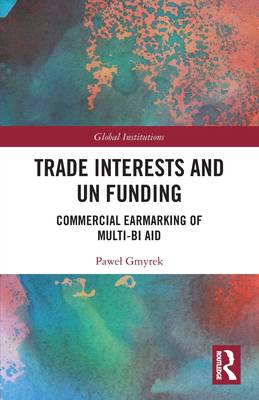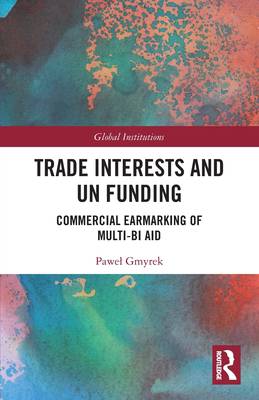
- Retrait gratuit dans votre magasin Club
- 7.000.000 titres dans notre catalogue
- Payer en toute sécurité
- Toujours un magasin près de chez vous
- Retrait gratuit dans votre magasin Club
- 7.000.000 titres dans notre catalogue
- Payer en toute sécurité
- Toujours un magasin près de chez vous
Description
This book examines a particular type of donor behavior - known as country earmarking of contributions - which occurs within the voluntary financing system of the United Nations.
The research demonstrates that already during the period of the Millennium Development Goals a large share of the voluntary multilateral funding decisions was influenced by the commercial priorities of the OECD/DAC donor countries. The theoretical contribution focuses on disentangling the mix of policy advantages that can be pursued through linking of donors' commercial priorities with multi-bilateral development programs. The book considers its empirical findings within the current framework of the Sustainable Development Goals and the associated aid financing architecture. It demonstrates that, despite many negative associations of commercial aid giving, it is difficult to make an indisputably negative judgment on the practice of commercial earmarking in the specific context of the specialized UN agencies. The author argues that whether commercial earmarking proves to be a curse or a blessing for the multilateral development institutions will very much depend on the availability of parallel, flexible funding, and the creation of adequate political and operational space for supranational norm-keepers.
Synthesizing the existing knowledge concerning the supply-side of multi-bi aid, this book provides an accessible, entry-level overview of the topic that will appeal to students and scholars of global governance and international organizations.
Spécifications
Parties prenantes
- Auteur(s) :
- Editeur:
Contenu
- Nombre de pages :
- 174
- Langue:
- Anglais
- Collection :
Caractéristiques
- EAN:
- 9780367545659
- Date de parution :
- 09-01-23
- Format:
- Livre broché
- Format numérique:
- Trade paperback (VS)
- Dimensions :
- 140 mm x 216 mm
- Poids :
- 235 g







